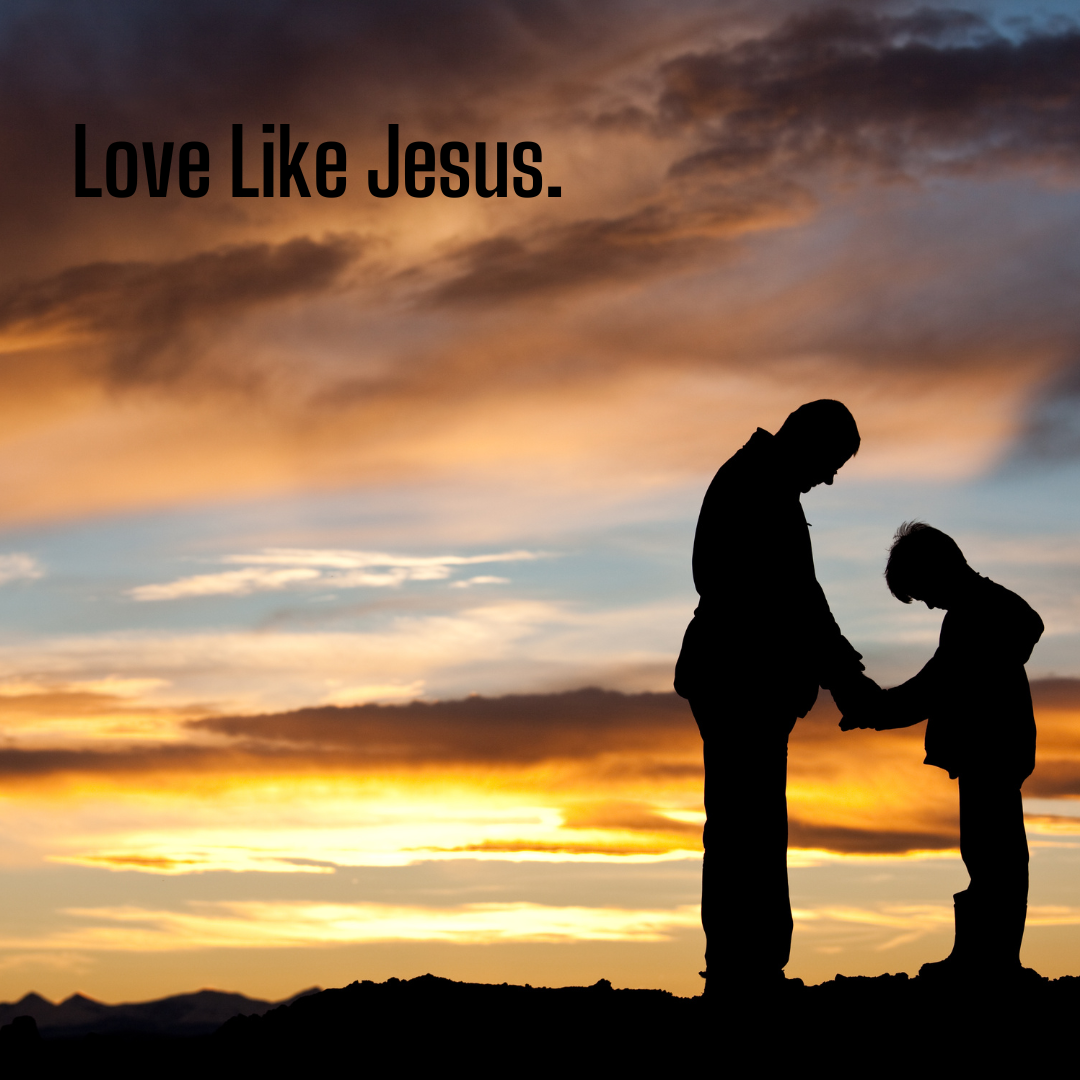Integrity
kmiller • October 29, 2021
 After getting back from a training trip in Kansas City, I came away from that trip reflecting on integrity. Integrity is a very important characteristic that I grew up always learning that it is something to value. Why is it so important? Is integrity relative? Was I any different than those I thought did not value integrity?
After getting back from a training trip in Kansas City, I came away from that trip reflecting on integrity. Integrity is a very important characteristic that I grew up always learning that it is something to value. Why is it so important? Is integrity relative? Was I any different than those I thought did not value integrity?
Needless to say, I had a lot of questions. I did some searching to hopefully break down the concept of integrity and to see if I could answer some of my questions. I found that there are three pillars of integrity that I would like to talk about today; What we do, What we say, What we say we do.
Before I dive in, I encourage you to read this quote and reflect throughout this devotion what it means to you:
“ One of the truest tests of integrity is the blunt refusal to be compromised.” - Chinua Achebe
The first pillar of integrity talks about what we do and ultimately it is asking, what do your actions say about your integrity? Proverbs 4:25-27 says, “Let your eyes look straight ahead; fix your gaze directly before you. Give careful thought to the paths for your feet and be steadfast in all your ways. Do not turn to the right or the left; keep your foot from evil.” This verse can be a response to the quote. “The blunt refusal to be compromised” to not turn to the left or the right, but keeping your gaze directly forward. Naturally I asked myself, how does one do that? So, I reflected back to the times I could pinpoint where I did compromise my own integrity, the values that I had set before me. Some were small things and others were big things. When I was thinking about the question, what do my actions say about my integrity? I thought about what someone else told me a few years ago, where you spend your time will reveal to you what you value. Were my actions saying that I valued integrity or comfort? I know the right answer for my question, but was it the true answer? Sometimes the true answer is harder to come face to face with than just knowing the right answer and fixing it.
The second pillar is what we say. What do your words say about integrity? James 1:26-27 says, “Those who consider themselves religious and yet do not keep a tight rein on their tongues deceive themselves, and their religion is worthless. Religion that God our Father accepts as pure and faultless is this; to look after orphans and widows in their distress and to keep oneself from being polluted by the world.” In verse 26, James gets specific about what it means to obey this freedom-giving law. James insists that we reveal the character of our religion. Most Christians avoid that word. In the modern world, the word "religion" tends to be associated with keeping rituals or rules in hopes of earning some divine favor. Those who are saved by faith in Christ understand that they have already received God's favor. We seek to use His power in us to live as Jesus would, to make good choices in response to the grace He has already given to us. In other words, while Christians tend to recoil at the modern meaning of the term "religion," we certainly embrace the concept James is speaking of in these verses. In verse 27, I got to be honest, I was lost. I did not know what James was talking about or why he chose orphans and widows. James is describing something for us, and in so doing is not being prescriptive, but descriptive. Orphans and widows—the fatherless and the husbandless—easily represented two of the most marginalized and pushed-aside classes of people in James’ culture. They carried no legacy and contributed nothing to society, so society pushed them away. James is using them as representatives of the most vulnerable groups of people we can come in contact with. In a sense, he’s suggesting that we become the kind of people who move towards, give intense attention to and visit those in our world who have been outcast, marginalized and pushed aside the most. And when we do—when we step towards the hard and broken, and not away—it puts the heart of God demonstrated in the gospel on display with a purity and cleanliness unlike anything else. As Christians, we are held to a higher standard because we know the grace that God has given us and his heart to make disciples to further the Kingdom of God. So why is it important to reflect on what we say? To protect others? To make ourselves look better? What happens when you are alone? What happens when no one can hear your thoughts? These are the questions I find myself asking to practice breaking my habits when I notice myself starting to compromise. It all starts with what I say and then I do.
The last pillar is what we say we do. What do your words about your actions say about your integrity? This pillar is the one that hits closest to home, for me. Matthew 6:16-18 says, “When you fast, do not look somber as the hypocrites do, for they disfigure their faces to show others they are fasting. Truly I tell you, they have received their reward in full. But when you fast, put oil on your head and wash your face, so that it will not be obvious to others that you are fasting, but only to your Father, who is unseen; and your Father, who sees what is done in secret, will reward you.” We live in a culture filled with highlight reels. People turn to their phones to post all their good deeds and good acts or accomplishments for others to see. One thing that I am personally guilty of. It might not always result in a Facebook or Instagram post, but instead the words that I say to those around me. I find myself doing it most when I need the approval of others instead of the Lord’s. I know that sounds backwards, but in all honesty, I do it more than I am proud to admit. Why is it so important to me to tell others all the good things that I am proud of when in my head there are 10 times more things that I am not proud of. The question that I will leave you with here today to reflect on is, What would your life look like if the inside became the outside?

After getting back from a training trip in Kansas City, I came away from that trip reflecting on integrity. Integrity is a very important characteristic that I grew up always learning that it is something to value. Why is it so important? Is integrity relative? Was I any different than those I thought did not value integrity?
Needless to say, I had a lot of questions. I did some searching to hopefully break down the concept of integrity and to see if I could answer some of my questions. I found that there are three pillars of integrity that I would like to talk about today; What we do, What we say, What we say we do.
Before I dive in, I encourage you to read this quote and reflect throughout this devotion what it means to you:
“ One of the truest tests of integrity is the blunt refusal to be compromised.” - Chinua Achebe
The first pillar of integrity talks about what we do and ultimately it is asking, what do your actions say about your integrity? Proverbs 4:25-27 says, “Let your eyes look straight ahead; fix your gaze directly before you. Give careful thought to the paths for your feet and be steadfast in all your ways. Do not turn to the right or the left; keep your foot from evil.” This verse can be a response to the quote. “The blunt refusal to be compromised” to not turn to the left or the right, but keeping your gaze directly forward. Naturally I asked myself, how does one do that? So, I reflected back to the times I could pinpoint where I did compromise my own integrity, the values that I had set before me. Some were small things and others were big things. When I was thinking about the question, what do my actions say about my integrity? I thought about what someone else told me a few years ago, where you spend your time will reveal to you what you value. Were my actions saying that I valued integrity or comfort? I know the right answer for my question, but was it the true answer? Sometimes the true answer is harder to come face to face with than just knowing the right answer and fixing it.
The second pillar is what we say. What do your words say about integrity? James 1:26-27 says, “Those who consider themselves religious and yet do not keep a tight rein on their tongues deceive themselves, and their religion is worthless. Religion that God our Father accepts as pure and faultless is this; to look after orphans and widows in their distress and to keep oneself from being polluted by the world.” In verse 26, James gets specific about what it means to obey this freedom-giving law. James insists that we reveal the character of our religion. Most Christians avoid that word. In the modern world, the word "religion" tends to be associated with keeping rituals or rules in hopes of earning some divine favor. Those who are saved by faith in Christ understand that they have already received God's favor. We seek to use His power in us to live as Jesus would, to make good choices in response to the grace He has already given to us. In other words, while Christians tend to recoil at the modern meaning of the term "religion," we certainly embrace the concept James is speaking of in these verses. In verse 27, I got to be honest, I was lost. I did not know what James was talking about or why he chose orphans and widows. James is describing something for us, and in so doing is not being prescriptive, but descriptive. Orphans and widows—the fatherless and the husbandless—easily represented two of the most marginalized and pushed-aside classes of people in James’ culture. They carried no legacy and contributed nothing to society, so society pushed them away. James is using them as representatives of the most vulnerable groups of people we can come in contact with. In a sense, he’s suggesting that we become the kind of people who move towards, give intense attention to and visit those in our world who have been outcast, marginalized and pushed aside the most. And when we do—when we step towards the hard and broken, and not away—it puts the heart of God demonstrated in the gospel on display with a purity and cleanliness unlike anything else. As Christians, we are held to a higher standard because we know the grace that God has given us and his heart to make disciples to further the Kingdom of God. So why is it important to reflect on what we say? To protect others? To make ourselves look better? What happens when you are alone? What happens when no one can hear your thoughts? These are the questions I find myself asking to practice breaking my habits when I notice myself starting to compromise. It all starts with what I say and then I do.
The last pillar is what we say we do. What do your words about your actions say about your integrity? This pillar is the one that hits closest to home, for me. Matthew 6:16-18 says, “When you fast, do not look somber as the hypocrites do, for they disfigure their faces to show others they are fasting. Truly I tell you, they have received their reward in full. But when you fast, put oil on your head and wash your face, so that it will not be obvious to others that you are fasting, but only to your Father, who is unseen; and your Father, who sees what is done in secret, will reward you.” We live in a culture filled with highlight reels. People turn to their phones to post all their good deeds and good acts or accomplishments for others to see. One thing that I am personally guilty of. It might not always result in a Facebook or Instagram post, but instead the words that I say to those around me. I find myself doing it most when I need the approval of others instead of the Lord’s. I know that sounds backwards, but in all honesty, I do it more than I am proud to admit. Why is it so important to me to tell others all the good things that I am proud of when in my head there are 10 times more things that I am not proud of. The question that I will leave you with here today to reflect on is, What would your life look like if the inside became the outside?
FCA NOCO Blog

I work with several churches and pastors in Northern Colorado. Individual conversations that reflect passion, purpose and vision to see the gospel come alive in our community. I always walk away from these conversations with pastors encouraged and inspired because the theme is often very similar. Although most of the conversations echo similar passions, I wonder what does it look like for “The Bride” of Jesus Christ to be intentional about unity between churches, not just within churches? John 17:21 On the night before the cross, Jesus did not pray for comfort, safety, or success. He prayed for unity —that His followers would be one, just as He and the Father are one, so that the world might believe. A unified church is not optional; it is missional. Unity flows from shared life in Christ, not shared preferences. Henri Nouwen reminds us that Christian unity is forged in love, not likeness: “Community is not an emotional feeling, but a decision to love one another.” True unity is not the absence of tension, but the presence of grace. The church becomes one body when we choose to bear with one another in humility and forgiveness, rooted in our common identity in Christ. Unity is visible when the gospel is bigger than our labels. Francis Chan challenges the church to reflect the prayer of Jesus: “Our unity should be so radical that it makes the world question why we are different.” When churches prioritize the fame of Jesus over their own platforms, unity becomes a compelling witness. The watching world should see cooperation, not competition. Unity is something we protect, not something we manufacture. Timothy Keller wisely notes: “Christians are one in Christ; unity is not something we create but something we recognize and live out.” (paraphrased) The gospel already unites believers across denominations, cultures, and generations. Our calling is to live consistently with that reality through love, patience, and shared mission. Unity is strengthened through shared mission in the community. In many towns, unity becomes tangible when churches work together—joint youth outreaches, shared benevolence ministries, community prayer gatherings, disaster relief efforts, FCA partnerships with schools, or pastors praying together across denominational lines. When churches lock arms to serve the poor, reach students, and proclaim Christ, the body moves as one. Application: Answering the Prayer of Jesus Examine your heart: Are there prejudices, preferences, or past wounds that hinder unity? Confess them to Christ. Pray intentionally for other churches and leaders in your community by name. Look for ways to serve alongside believers outside your own congregation. Speak well of Christ’s church—even when it’s imperfect—remembering she is His bride. Ask this simple question: “How can I make unity easier, not harder, in the body of Christ?” Jesus prayed for unity on His way to the cross. May we honor that prayer—not just with our words, but with our lives—so that the world may know that the Father sent the Son.

For the last several weeks I have been in Galatians and Romans. I’ve been considering the life of the apostle Paul. Two primary components have surfaced for me and have been filling my quiet spaces with questions and conviction. Paul not only had a reputation, but he seemed to have a platform in every city. This platform seemed to be a result of his teaching as well as his redeemed demeanor. Every single day that Paul lived, after coming face to face with Jesus, was approached with expectation and urgency. Paul did not have a transactional experience with Jesus on the road to Damascus, he had a transformation that utterly and completely altered the trajectory of his life. Lives that are changed by transaction look more like moral reformation. Paul’s life was absolutely transformed by the love of Jesus Christ. A life that is transformed transcends our own ability to reform our behavior. Our lives transformed by the love of Jesus results in a response that alters our behavior. Paul was so keenly aware that his redemption had absolutely nothing to do with his abilities, and his life’s pursuit to be righteous. Jesus paid the debt not even Paul could pay, and the response was a captivated heart with the beauty of his savior. Paul also had significant clarity around “his sermon”. An old friend of mine wants told me that pastors sometimes take a bit to “find their sermon”. That one quintessential conviction that finds its way into every sermon they preach. For Paul, it was an amazing clarity around the gospel and the urgency to abstain, absolve and flea from false gospels. Paul was a dog with a bone regarding the gospel and how he traveled from location to location and nothing else in his life mattered much outside the gospel and the proclamation of the gospel every chance he got. The platforms that Paul had were ordained and prepared by the Holy Spirit. The gospel of Jesus Christ is what was amplified and proclaimed by Paul. I am compelled and filled with affection for the gospel, and the older I get it is quickly becoming the single thing in my life that addresses every aspect of a life long sanctification process.

In our first sermon at church this year, our Pastor mentioned the word “recalibration” and ever since, I haven’t stopped pondering upon the word. It means resetting or adjusting settings to help stay on course. Many may understand recalibration when flying a plane since pilots are consistently gauging the course to ensure they are not veering off trajectory. At home, many of us may readjust or recalibrate settings on the thermostat in our home… especially those in Colorado as we experienced a magnificent cold front across the Front Range. How does this apply to faith? That's where it stuck out to me. Our pastor shared about recalibrating to stay on course with the Lord’s plan and using references to Jeremiah 29. The Israelites were held in captivity, yet the Lord speaks in verse 5 “Build houses and settle down; plant gardens and eat what they produce. Marry and have sons & daughters; find wives for your sons and give your daughters in marriage, so that they too many have sons and daughters. Increase in number there; do not decrease. Also, seek peace and prosperity in the city which I have carried you into exile. Pray to the Lord for it, because if it prospers, you too will prosper (Jeremiah 29:5-7).” Amid exile, the Lord is speaking of building houses & settling down, getting married & multiplying. Can you imagine? In the thick of surviving exile, the encouragement is to dig into it & thrive in exile. And our pastor brought up the fact that we may not be in similar exile in Jeremiah 29, however, Peter reminds us that we are “aliens and strangers [in this world] to abstain from the sensual urges [those dishonorable desires] that wage war against the soul (1 Peter 2:11). In this world, we are captives, heaven is our home. Our world is not. So how does that reconnect to recalibration? Sometimes our situations, scenarios, and circumstances can veer us off track. And we may even be doing all the right things in the church, ministry, home, and all our relationships. But being 1-degree off course can eventually lead to miles off course. To pilots, being 1 degree off course is detrimental enough to completely change coordinate points. Similarly in walking with the Lord, being 1 degree off course is detrimental enough to cause a mission drift. A mission drift is where we get off course of what the Lord has called us to do. Recalibration is a key to helping us realign with what God has for our lives. Even if our current condition feels like exile where we can’t get out or it is harder than we called for, we must trust in the Lord because he knows the plans for us (Jeremiah 29:11). When we recalibrate to reset our settings to the Lord’s direction, we can continue to build & thrive & plant and multiply no matter what climate we are facing.

I’ve been wrestling probably for a good portion of my life without really even knowing it. What do I love? Seems pretty easy right? Even where I spend my time and energy, does not really reflect what I love? Some of you will read this and others will not, but I would love to interact with you in this short writing if you would.

My church recently went through a series on the Holy Spirit and a key point that was made during one of the sermons was “ What God forms, He fills . ” I’ve been spending a lot of my quiet time meditating and reflecting on my relationship with each part of the Trinity and on the aforementioned point.

“I hope we get to go swimming today.” “I hope the Avalanche win the Stanley cup.” I have said phrases like this all my life. I began to wonder about where does this hope come from? Hope is not an accident. Hope is an indicator, it is a bi-product of something going on within. When we refer to hope based on a circumstance or a specific context it reveals our affection, our hearts attention. It is normal and good to look forward and to anticipate things in our life that we enjoy. However most of those things are temporary. Hope that is robust, sturdy and eternal is something a bit different. Developing a hope that you can build a framework to live by is a process that takes time and begins with suffering.






